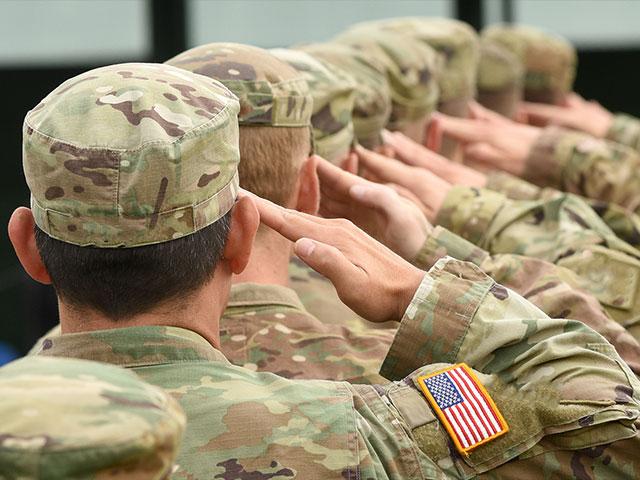
People both inside the Pentagon and out are worried that extremism is on the rise in the U.S. military. But there’s evidence they’re about to take their crackdown too far and target decent people as well.
A recent Department of Defense study gave several examples of active duty white supremacists it found. Some in Congress fear the possibility of rising extremism enough to call a hearing about it this week. During that House Armed Services Committee hearing, a representative of the far-left Southern Poverty Law Center (SPLC) rang some alarm bells.
SPLC chief of staff Lecia Brooks stated, “We have the report or survey results from the Military Times last year that reported over 50 percent of service members of color say that they witnessed racist or white supremacist behavior within the ranks.”
Need to ‘Root Out’ Racism & Bigotry
Committee Chair Democrat Rep. Adam Smith commented, “Racism continues to occur within the ranks, and we must work to root out this bigotry and deal with that problem in a comprehensive manner.”
It was pointed out some 20 percent of those arrested for the January 6th takeover of the U.S. Capitol building were present or former military members.
Found ‘Dozens’ Among the ‘Most Dangerous & Violent White Supremacist Groups’
And the SPLC’s Brooks added, “Over the last several years, SPLC researchers and journalists have identified dozens of former and active military personnel among the membership of some of the country’s most dangerous and violent white supremacist groups.”
But First Liberty Institute’s Michael Berry warned the military could be in danger of lumping in good people of faith with radical extremists.
Lumping Evangelicals & Catholics with al Qaeda & the KKK
He said, “I’m pulling directly from Department of Defense publications here, labeling evangelical Christians and Catholics in the same category that they categorize Hamas, al Qaeda, and the Ku Klux Klan.”
Berry – a former military lawyer – told CBN News it’s suspected a very tiny fraction of troops are actually dangerous radicals…and purges can easily get out of hand.
“While it’s important to remove true extremists from our military, we have to be very cautious not to infringe upon the constitutional rights of the other 99.9 percent,” he said.
‘Nine out of Nearly One Million’
At the hearing, ranking Republican Rep. Mike Rogers stated, “We lack any concrete evidence that violent extremism is as rife in the military as some commentators claim. Since the start of FY20, nine soldiers have been separated from the Army for misconduct where extremism was a factor. Nine out of nearly one million.”
Chairman Smith admitted, “We don’t know for sure how large the problem is. That’s why we’re having the hearings. That’s why we’re having the conversation.”
Are Millions of Americans at Risk of Being Labelled ‘Radicals’ & ‘Extremists?’
One worry among conservatives and civil libertarians is that Biden administration officials overseeing the armed forces might consider those particularly loyal to former President Trump and his ideology “extremists.” And these officials might consider military members who are deeply opposed to the Biden administration as “anti-government radicals.”
That’s why these conservatives and libertarians are particularly concerned about the present push by Democrats in the White House and Congress to wage a more active campaign against “domestic terrorism.” They’re worried millions of ordinary citizens and troops could get lumped in with actual domestic terrorists.
SPLC had Ben Carson on its Hate Groups List
It’s one reason some on the Republican side of the aisle at the hearing weren’t ready to accept at face value SPLC’s claim that extremism and hate are on the rise in the military. One lawmaker there pointed out at one point the SPLC, with its radically anti-conservative agenda, put former HUD secretary and former Republican presidential candidate Ben Carson on their annual list of haters.
Committee Republicans brought up over and over again that actual evidence and research need to be done before action is taken against military members.
Committee member Rogers commented, “Anecdotes and online polls should not be our guide. Nor should we rush to create large-scale government surveillance program to monitor service members’ political leanings.”
The remainder of this article is available in its entirety at CBN